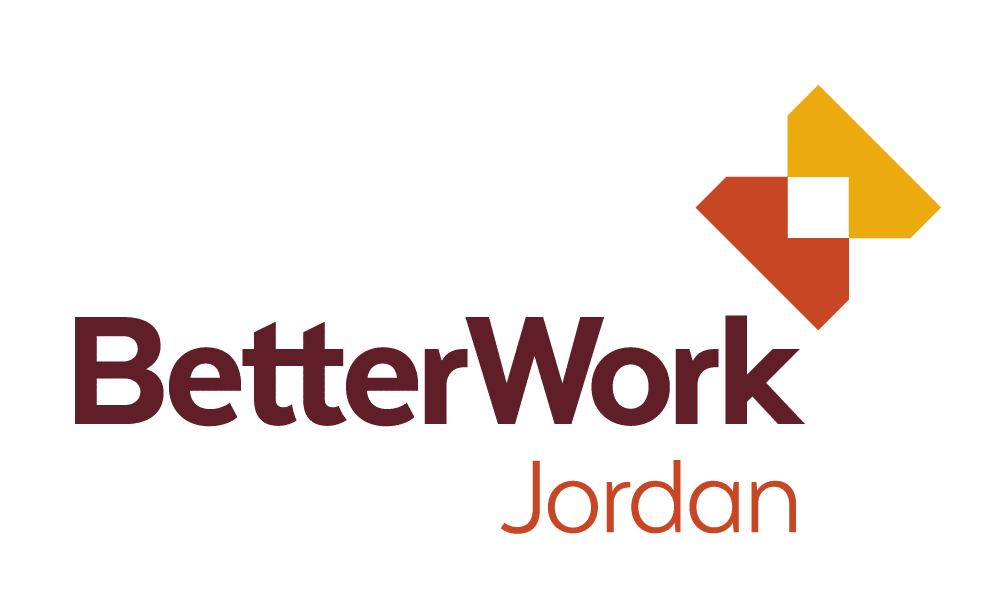Better Work Jordan
Since its establishment in 2008, Better Work Jordan has worked in close partnership with the Government, employers’ and workers’ organizations, development partners, and international brands to promote decent work and enhance competitiveness in the garment sector. Over the past 15 years, the programme has contributed to meaningful improvements in working conditions, social dialogue, and labour market governance. As of June 2025, Better Work Jordan has paused its operations due to a cut in funding.
While Better Work operations are currently paused, the ILO is in ongoing discussions with the constituents and stakeholders, and remains committed to supporting the sector and is engaging in dialogue on potential avenues for future collaboration. Continued efforts to uphold labour standards and promote inclusive growth in Jordan’s garment industry are of critical importance. Better Work continues to strive for an export-oriented Jordanian garment industry that lifts people out of poverty by providing decent work, empowering women and driving business competitiveness and inclusive economic growth.
During its tenure, Better Work Jordan worked to strengthen the capacity of tripartite constituents – government, workers and employers – to fulfill their mandates in promoting decent work outcomes. As a first for Better Work, Better Work Jordan tested successfully an innovative labour inspection secondment programme to build the capacity of labour inspectors to conduct high quality inspections. In recent years, the programme has also worked with other technical teams within the ILO, including experts on occupational safety and health (OSH), to equip Ministry of Labor (MoL) inspectors with the tools, skills and knowledge to undertake factory assessments using Better Work methodology.
Our Strategic Goals
Better Work Jordan’s 2022-2027 strategic phase will work to achieve the following outcomes:
By 2027, Jordan’s garment industry will have an effective system of tripartite-plus labour market governance, in which workers’ rights are upheld and protected in line with national labour laws and core international labour standards.
By 2027, export growth combined with active labour market policies will increase the garment industry’s contribution to Jordanian employment.
By 2027, Better Work Jordan will have made a positive impact on working conditions and labour market governance beyond Jordan’s export-oriented garment industry.
Latest news
Statement on Better Work Jordan Operations
GENEVA – As of 22 June, 2025, Better Work Jordan has paused its operations due to a cut in funding. While Better Work has sought alternative funding sources to continue aspects of the programme, the funding gap has proved insurmountable at this time. Unfortunately, this has led to the closure of the programme’s presence in …
Contribution to Priority Themes
Better Work Jordan’s strategy contributes to five of the priority themes set out in the Better Work Global strategy. It also includes migration as an additional theme. These themes crosscut the strategic goals and will be present in our factory engagement, research, policy influencing and content produced as well as affect how we allocate our human and financial resources.
Environmental sustainability
Better Work Jordan is currently conducting research on the environmental impacts of the garment sector and will work with stakeholders in the industry and organizations in Jordan to apply recommendations from this research.
Data and evidence
To build a sustainable knowledge base on Jordan’s garment industry, and on labour issues in the country more broadly, Better Work Jordan will support stakeholders’ capacity to collect, analyze and effectively disseminate their own data. Better Work Jordan will also support the garment industry trade union to improve its communication and engagement with the workers.
Gender equality and inclusion
Better Work Jordan will foster women’s economic empowerment by promoting an enabling environment that provides opportunities for women’s career development. The programme will strengthen women’s voice in factories, labour management committees and the garment industry trade union and reduce gender-based discrimination, including violence and harassment in the workplace.
Occupational safety and health (OSH)
Better Work Jordan will work with the Social Security Corporation and the MoL on OSH-related non-compliance issues, while also strengthening OSH committees in factories. Better Work Jordan will also work with partners at the policy level to assess the structural integrity of dorms in the garment sector and propose improvements.
Social dialogue
Strengthening social dialogue between and management at the factory level, as well as at the sectoral level through the work of the sectoral council, Better Work Jordan will support national stakeholders’ efforts to develop robust social dialogue institutions and processes in Jordan’s garment industry.


